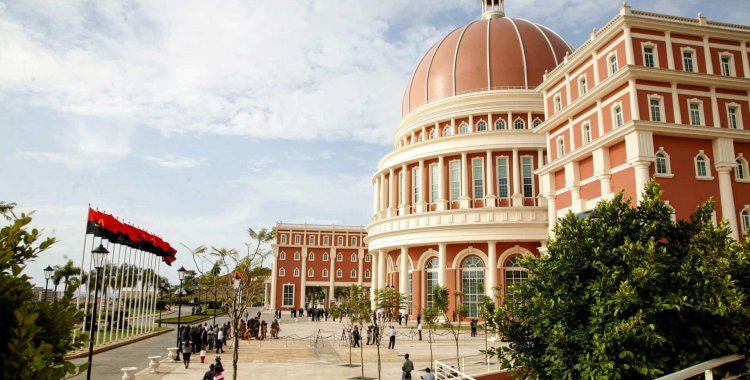The amendment to the CPP of Angola, in force since November 11, 2020, whose first amendment took place in 2021, passed the scrutiny of the deputies with 155 favorable votes and five abstentions.
The grounds for amending the legal diploma were presented to the plenary by the Minister of Justice and Human Rights, Francisco Queirós, during the sixth extraordinary plenary meeting referring to the fifth legislative session of the fourth legislature of the National Assembly.
"A few months after its entry into force, it appears that this important legal instrument lacks improvements dictated by the dynamics of the criminal procedure, especially with regard to the fight against corruption and impunity", said the minister.
At least 16 articles must be amended within the scope of this proposed law.
According to Francisco Queirós, article 127 introduces new numbers that "strengthen the mechanisms of notification of the accused so as not to allow the processes to be stopped for lack of it or for lack of notification".
Article 254, he noted, "reinforces the preconditions for detaining the defendant outside the act of committing a crime in order to fully safeguard the ends it seeks to achieve."
The amendment to article 286 of the CPP aims to "autonomize the preventive seizure, as a measure of property guarantee, avoiding situations in which the defendant can dissipate the property while applying the economic guarantee while waiting for its provision".
"Article 313, which clearly defines the concept of guarantee judge and stipulates its powers, this amendment is also reflected in articles 315, 334. 336, 338, 341 and 345 .º", stressed the governor.
Francisco Queirós also reasoned that article 382 "presents the exception that aims to continue the trial hearing, without the presence of the accused, in cases where the accused has voluntarily moved the connecting element or voluntarily maintained such displacement with the objective of to avoid the action of justice".
"These are, for example, cases in which the defendant travels outside the country before or after the criminal proceedings have been initiated and remain there, refusing to return to Angola and thus blocking the conduct of criminal justice. Angola", he explained.
The minister also pointed out that the "exception" of the aforementioned article "safeguards, however, that upon the defendant's return, before the trial hearing is closed, he may be ordered to appear at the trial, including clarification of his absence and the observance of the contradictory ".
With the amendment to article 475.º, he added, it is intended that the deadline for filing the appeal "starts counting from the date on which the sentence is published in the press, in cases where the trial is carried out without the presence of the defendant".
Deputies in the plenary, especially in the opposition, questioned the relevance of the second amendment to the CPP, with Francisco Queirós assuring that the amendments "also aim to bring greater speed to criminal proceedings".
"And all this aims to improve the solutions, without harming the rights, freedoms and guarantees of the defendants", concluded the minister.
The draft law authorizing the President of the Republic to legislate on the Social Protection System of the Angolan Armed Forces and the draft law establishing the Legal Regime for Public Appropriation were also approved in this session which continues on Thursday with other points for discussion.







